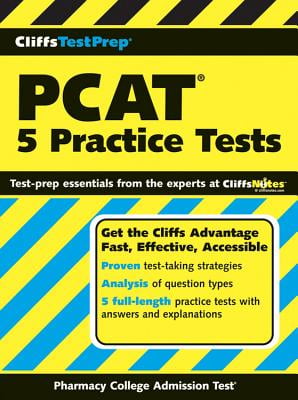


Focusing on just a couple study methods allows for a diversity of perspectives without becoming overwhelming. “There’s no pre-professional curriculum in the country that matches the PCAT identically,” McCaffrey said. No single method guarantees a strong score. There are multiple tools for PCAT prep, including books, tutors, online courses, and undergraduate study groups. Jeff Koetje, MD, PCAT adviser and director of pre-health programs at Kaplan Test Prep, recommends studying 10 to 15 hours per week and a total of 100 to 200 hours. This translates to nine hours of studying each week.įor students on a shorter time frame: Dr. McCaffrey recommends students approach PCAT prep like any another class, or a three-credit course lasting one semester. The amount of time a student should devote to studying varies by learning style and academic background. “Plan for two and hope for one,” McCaffrey said.Ĭustomize your study plan to your experience. Scheduling your first attempt earlier in the cycle gives you a cushion in case you want to take the PCAT again. Pearson, the organization that creates the PCAT, administers the test at specific times of the year:(PDF, 268KB) July, September, October/November, December, January, and February.
FREE PCAT PRACTICE EXAM REGISTRATION
Deeply learning the material from freshman year onward will not only give you a boost in PCAT studying but also strengthen your knowledge base for pharmacy school.Ĭomplete PCAT registration after starting to study.īy registering after beginning preparations, you can approach the test with greater confidence, which McCaffrey believes results in the best performance.ĭon’t let the last test be your first attempt. “The learn-and-purge strategy is not going to equate into a strong PCAT performance, because you won’t be able to draw on anything that you’ve been exposed to before,” McCaffrey said.

Any unauthorized use of this trade mark would be considered the violation of law.In pre-pharmacy courses, be sure to master the topics that will appear on the PCAT. RXEXAM® is a registered trademark of Pharmacy Exam of Krishna Publication, Inc. Any doubtful or questionable answers should be checked in other available reference sources. The author and owner of this website are not liable or responsible for any kind of misinterpreted, incorrect or misleading information or any typographical errors in any of our study materials. This is only a review tool for preparation of different pharmacy related exams. Do not administer any dose of mentioned drugs on this website without consulting your physician. Do not use any information of this website for any kind of self-treatment. Students or readers must consult their physician about any existing problem. Study materials and information available on are not intended as a substitute for the advice of a physician. PCAT® (Pharmacy College Admission Test) is a registered trademark owned by Harcourt Assessment, Inc., our PCAT® study material is in no way authorized by or sponsored by the Harcourt Assessment, Inc.īPS® is an autonomous Division of the American Pharmacists Association (APhA), our BPS® study material is in no way authorized by or sponsored by APha®.ĭisclaimer: No part or content of Blogs, Cd Roms or Books may be reproduced or transmitted in any form or by any means, electronically photocopying, recording, or otherwise, without prior written permission of the publisher. PTCB® (Pharmacy Technician Certification Board) is a registered trademark owned by PTCB, Inc., our PTCE® study material is in no way authorized by or sponsored by the PTCB®. NAPLEX®, PARE®, FPGEE® and MPJE® are federally registered trademarks owned by the National Association of Boards of Pharmacy (NABP®), our study material or this web site is in no way authorized or sponsored by the NABP®.


 0 kommentar(er)
0 kommentar(er)
